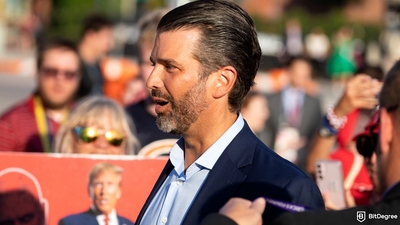Free Airdrop Season 7 is LIVE! Answer fun questions or do simple tasks to earn rewards from the $30K BitDegree prize pool. Participate Now ! 🔥
Musk vs. OpenAI: Legal Clash Over Founding Agreement
Key Takeaways
- Elon Musk has filed a lawsuit against OpenAI and its CEO, Sam Altman, alleging a departure from the company's nonprofit mission and engagement in unfair business practices.
- The lawsuit specifically criticizes the proprietary nature of ChatGPT-4, arguing it serves Microsoft's financial interests contrary to OpenAI's founding principles.
- Musk's legal action reflects broader concerns over the commercialization of AI.
Elon Musk has initiated a lawsuit against OpenAI, the artificial intelligence research lab he co-founded, and its CEO, Sam Altman.
The lawsuit, filed in the Superior Court of California for the County of San Francisco on February 29, centers around allegations that OpenAI has strayed from its original nonprofit mission, particularly in its partnership with Microsoft.

Did you know?
Subscribe - We publish new crypto explainer videos every week!
What is Ethereum Classic & ETC Coin? (Animated Explainer)


Musk's case against OpenAI outlines several accusations, including breach of contract and violation of fiduciary duty.
He accuses OpenAI of abandoning its commitment to open-source artificial general intelligence (AGI) development aimed at benefiting humanity.
This shift, Musk argues, is exemplified by the release of ChatGPT-4, which, unlike its predecessors, was launched as a closed model, primarily benefiting Microsoft financially.
Musk's lawsuit also criticizes the current OpenAI board's lack of technical expertise in AGI, pointing to the controversial removal and reinstatement of Altman as CEO as indicative of the company's shifting priorities towards profit maximization at the expense of its foundational principles.
Musk, who departed from OpenAI's board in 2018, has been a vocal critic of the AI industry's rapid commercialization, emphasizing the potential risks AI technology poses to human society.
He has called for stringent regulation and responsible development of AI, underscoring the importance of focusing on positive human impact rather than profit.
Musk's legal challenge is a call for OpenAI to realign with its original mission of advancing open-source AGI for the global good and to halt the for-profit exploitation of AI technologies.
Whether benefiting from it financially or not, Microsoft and OpenAI are still pushing innovation. Microsoft Research and Peking University scientists started trying to enable ChatGPT to operate autonomously within an OS.























